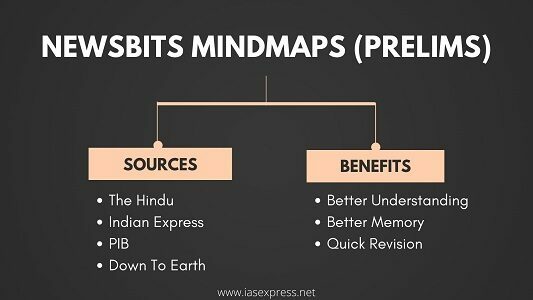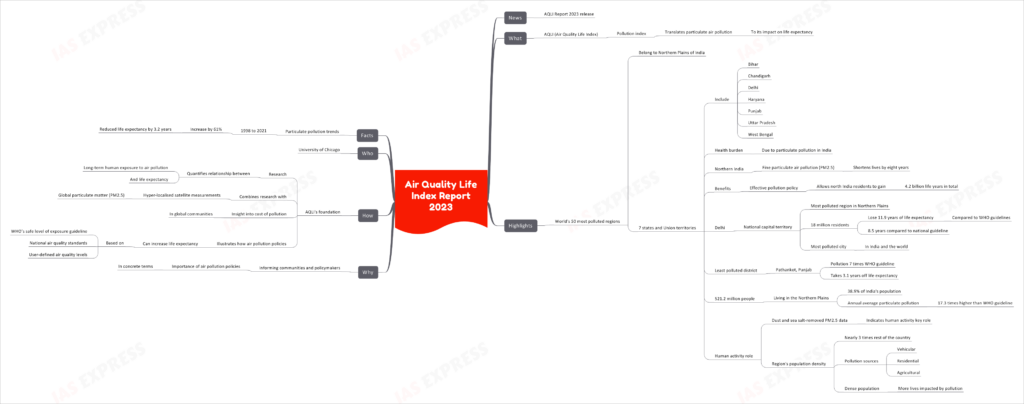Newsbits [01.09.2023]

The Dirty Dozen Report
The release of "The Dirty Dozen: The Climate Greenwashing of 12 European Oil Companies" report by Greenpeace Central and Eastern Europe (CEE) sheds light on the discrepancy between the environmental pledges and actions of major oil companies. This comprehensive analysis scrutinizes the practices of twelve European oil companies, uncovering instances of greenwashing and raising concerns about the authenticity of their commitment to combat climate change.
The Dirty Dozen: An Overview
"The Dirty Dozen" report focuses on twelve prominent European oil companies, dividing them into two categories:
- Six Largest Global Oil Companies: Shell, TotalEnergies, BP, Equinor, Eni, Repsol
- Six Pivotal in European Energy Transition: OMV (Austria), PKN Orlen (Poland), MOL Group (Hungary), Wintershall Dea (Germany), Petrol Group (Slovenia), Ina Croatia (Croatia)
Unveiling Greenwashing Practices
Unfulfilled Net Zero Pledges
The report underscores that the net zero pledges made by European Big Oil were not realized in 2022, casting doubts on the sincerity of their commitments.
Limited Renewable Energy Production
Despite claims of transition to renewable energy, these companies produced only 0.3% of their total energy from renewables, with a staggering 99.7% coming from oil and gas.
Financial Gains Amidst Climate Concerns
In 2022, while profits and revenues of these companies increased by 75% and 70% respectively, investments in green energy constituted only 7.3% ($7.09 billion), whereas 92.7% ($87.95 billion) was allocated to fossil fuels.
Accusations of Misleading Information
The report alleges that these companies have misled the public by promoting misleading practices, touting dangerous distractions like carbon capture and storage (CCS), ignoring emissions from oil and gas sales, and making deceptive claims about transitioning to renewables.
Investment Patterns
While some companies reduced investments in low-carbon and renewables in 2022 compared to the previous year, others allocated a mere fraction of their budget to real low-carbon initiatives.
Lack of Coherent Strategies and Recommendations
Net Zero Commitment and Incoherent Strategies
Although most of the companies have pledged to achieve net zero emissions by 2050, the report highlights a lack of coherent strategies to fulfill these commitments. Equinor, Eni, and OMV share the same net zero goal but fall short in providing a well-defined roadmap.
Nonprofit Recommendations
The report suggests several recommendations to address the greenwashing issue:
- Enforce strict regulations on fossil fuel companies.
- Mandate investments in green infrastructure.
- Initiate the decommissioning of North Sea infrastructure.
- Establish a phase-out roadmap for oil and gas in Europe.
- Strengthen regulations, including a ban on misleading advertising.
Analysis Methodology and Contributor
The analysis conducted in the report is based on the examination of the 2022 annual reports of the twelve companies. The report was published by Greenpeace Central and Eastern Europe (CEE).
Air Quality Life Index Report 2023
The release of the Air Quality Life Index (AQLI) Report 2023 has highlighted the grave consequences of air pollution on human life expectancy. Developed by the University of Chicago, the AQLI provides a unique perspective by translating particulate air pollution into its impact on life expectancy. The report's findings underscore the urgent need for effective pollution control policies to safeguard the health and well-being of communities.
Understanding the AQLI
The Air Quality Life Index (AQLI) serves as a crucial tool for comprehending the relationship between air pollution and its detrimental effects on human life. It quantifies the impact of particulate air pollution on life expectancy, translating pollution levels into tangible years of life lost due to exposure.
Alarming Findings in Northern Plains of India
Concentration of Pollution
The AQLI Report reveals that the world's 50 most polluted regions are concentrated in the Northern Plains of India. Seven states and Union territories, including Bihar, Chandigarh, Delhi, Haryana, Punjab, Uttar Pradesh, and West Bengal, bear a significant health burden due to particulate pollution.
Impact on Life Expectancy
In Northern India, fine particulate air pollution (PM2.5) shortens lives by an alarming eight years on average. However, effective pollution policies offer a glimmer of hope, allowing residents in this region to collectively gain 4.2 billion life years.
Struggles in Delhi
Delhi, the national capital territory, emerges as the most polluted city not only in India but also globally. Its 18 million residents lose 11.9 years of life expectancy compared to WHO guidelines, and 8.5 years compared to national guidelines.
The Role of Human Activity
The report underscores the crucial role of human activity in exacerbating pollution. The region's population density, nearly three times that of the rest of the country, amplifies pollution sources such as vehicular, residential, and agricultural activities.
Informing Policy and Communities
Empowering Policymakers
The AQLI Report serves as a vital tool to inform policymakers about the concrete impact of air pollution. By illustrating the potential increase in life expectancy through various pollution control measures, the report highlights the importance of enacting effective policies.
Educating Communities
The report's insights not only empower policymakers but also educate communities about the dire consequences of unchecked pollution. This awareness can foster a collective commitment to reducing pollution levels and protecting public health.
The Foundation and Methodology of AQLI
The AQLI is built upon extensive research that quantifies the relationship between long-term human exposure to air pollution and life expectancy. It combines research findings with hyper-localized satellite measurements of global particulate matter (PM2.5). By examining the cost of pollution in global communities, the AQLI underscores the potential for policies to enhance life expectancy based on various air quality standards.
NCERT
The occasion of the 63rd foundation day of the National Council of Educational Research and Training (NCERT) marked a significant milestone in the organization's journey. With its formidable presence in research and transformative efforts in shaping education, NCERT has been a driving force in improving school education, teacher training, and adult literacy.
Evolution and Achievements
NCERT, also known by its full name, the National Council of Educational Research and Training, has emerged as a trailblazer in the field of education. As an autonomous organization focused on educational literature and training, NCERT has actively contributed to various aspects of education. Its achievements encompass:
- Research Excellence: NCERT's dedication to research has resulted in valuable insights and advancements in education, positively impacting teaching methodologies and curriculum development.
- Educational Transformation: NCERT has played a pivotal role in shaping the landscape of school education, revamping teaching techniques, and promoting innovative approaches that enhance learning outcomes.
- Teacher Training: By providing comprehensive teacher training programs, NCERT has empowered educators with the skills and knowledge needed to deliver effective and engaging lessons.
- Adult Literacy: NCERT's commitment extends to adult literacy initiatives, contributing to the upliftment of individuals and communities through education.
Future Aspirations
Looking ahead, NCERT aims to elevate its status by becoming a research university. This transformation holds immense promise, creating opportunities for global collaborations and expanding its contributions to the worldwide educational ecosystem.
NCERT as a Research University
- Global Collaborations: The transition to a research university would facilitate partnerships with institutions around the world, fostering the exchange of ideas and best practices in education.
- Global Impact: As a research university, NCERT's contributions could extend beyond national boundaries, enriching education on a global scale and promoting cross-cultural understanding.
The NCERT Journey: A Glance Back in Time
Establishment and Autonomy
NCERT, established in 1961, has evolved into a leading authority on educational matters. Its autonomy allows it to innovate, develop curricula, and create educational resources that cater to the changing needs of students and educators.
Deemed University Status
The central government, on the advice of the University Grants Commission (UGC), has the authority to confer 'Deemed-to-be-university' status upon an Institution of Higher Education. This prestigious designation grants academic status and privileges akin to those of a university.
Expanding Academic Offerings
With the 'Deemed-to-be-university' status, NCERT can offer a broader range of academic programs, including graduate, postgraduate, and doctoral degrees. This expansion enhances the organization's ability to shape a diverse pool of educators and researchers.
Innovations in Learning: Introducing "Jaadui Pitara"
Among NCERT's innovative offerings is "Jaadui Pitara," a play-based learning-teaching material designed for children aged 3 to 8. This product exemplifies NCERT's commitment to making learning engaging and enjoyable for young learners, setting the foundation for a lifelong love of learning.
Offshore Security Coordination Committee
The recent convening of the 135th meeting of the Offshore Security Coordination Committee in Ahmedabad highlights the significance of collaborative efforts in safeguarding offshore installations. Chaired by Director General Rakesh Pal of the Indian Coast Guard, the committee brings together a range of stakeholders to address offshore security coordination and mitigate potential threats to vital resources.
The Apex Policy-Making Body for Offshore Security
The Offshore Security Coordination Committee serves as the apex policy-making body responsible for overseeing and coordinating efforts related to offshore security. By bringing together key stakeholders, the committee aims to ensure the smooth and effective functioning of security arrangements in the offshore domain.
Prioritizing Effective Functioning and Threat Mitigation
The committee's primary objective is to ensure the seamless functioning of offshore security arrangements, thereby safeguarding critical installations and resources. By identifying and addressing peace-time threats such as terrorism and sabotage, the committee plays a pivotal role in maintaining security in the maritime domain.
Collaborative Approach and Committee Composition
Stakeholders and Representatives
The Offshore Security Coordination Committee meeting includes representatives from various entities such as:
- Indian Coast Guard
- Indian Navy
- Indian Air Force
- Oil and Natural Gas Corporation (ONGC)
- Intelligence Bureau (IB)
- Director General (DG) Shipping
- Ministries of Home Affairs and External Affairs
- Defence Research and Development Organisation (DRDO)
Chairman and Members
Chaired by the Director General of the Indian Coast Guard, the committee consists of representatives from key agencies including the Indian Navy, Indian Air Force, Intelligence Bureau, Ministry of External Affairs, police departments, and ONGC.
A Regular Review Process
Meeting Frequency and Purpose
The committee convenes every six months to review and evaluate offshore security in India. This regular assessment allows for timely identification of potential gaps in security arrangements and the formulation of appropriate strategies to address them.
Contingency Plans and Implementation
The Offshore Security Coordination Committee plays a vital role in developing contingency plans that are subsequently implemented by various agencies involved in offshore security. This collaborative approach ensures a comprehensive response to potential threats.
Historical Context and First Meeting
The Offshore Security Coordination Committee was established in 1978 as a response to the growing need for a unified approach to offshore security. Its inaugural meeting, chaired by Vice Admiral VA Kamath, then DGICG, set the stage for future efforts in safeguarding India's offshore resources.
Global Finance Central Banker Report Cards 2023
In the world of global finance, the performance of central banks and their leaders plays a pivotal role in shaping economies and influencing financial stability. The recently released 2023 Central Banker Report Cards by Global Finance magazine highlight the achievements and effectiveness of central bank governors across 101 key countries, territories, and districts. Among the standout performances is that of Shaktikanta Das, the Governor of the Reserve Bank of India (RBI), who has been rated A+ for his adept handling of the Indian economy during challenging times.
Central Banker Report Cards: An Annual Assessment
The Central Banker Report Cards are an eagerly awaited annual publication that evaluates the performance of central bank governors on a global scale. This assessment involves grading their efforts in managing their respective economies, maintaining price stability, and contributing to overall economic growth. The report covers a diverse range of jurisdictions, including prominent entities like the European Union, the Eastern Caribbean Central Bank, the Bank of Central African States, and the Central Bank of West African States.
Shaktikanta Das's Remarkable Achievement
A+ Rating for Shaktikanta Das
Shaktikanta Das, the 25th governor of the RBI, has been accorded an A+ rating in the 2023 report. He took over the reins of the RBI on December 12, 2018, succeeding Urjit Patel. This rating underscores his effective leadership and strategic decision-making during his tenure.
A Multifaceted Leader
Prior to becoming the RBI Governor, Shaktikanta Das served as the Secretary in both the Department of Revenue and the Department of Economic Affairs within the finance ministry. His diverse experience equipped him with insights into fiscal matters, enabling him to tackle complex economic challenges.
Praise-worthy Achievements
Shaktikanta Das's tenure as the RBI Governor has been characterized by his adept handling of the Indian economy, particularly during times of global economic uncertainty. His policies have played a pivotal role in controlling inflation and supporting sustainable economic growth.
Recognition Beyond Borders
A+ Peers in the Global Arena
Apart from Shaktikanta Das, the 2023 report also recognizes other central bank governors who have earned an A+ rating. Thomas J. Jordan of Switzerland and Nguyen Thi Hong of Vietnam join the ranks of exemplary economic stewards who have demonstrated outstanding leadership in their respective regions.
The Significance of Central Bankers' Role
Central bank governors play a crucial role in maintaining economic stability, which includes addressing inflation dynamics that can be influenced by factors such as pent-up demand and disrupted supply chains. Their decisions and policies have far-reaching effects on financial markets and the broader economy.
The Rating System: From 'A' to 'F'
The rating system employed by Global Finance assigns letter grades to central bank governors based on their performance. An 'A' grade signifies excellent performance, reflecting effective strategies and positive outcomes for their economies. Conversely, an 'F' grade indicates a significant failure in their responsibilities.
Global Finance: The Assessor
Global Finance, a US-based magazine, has been conducting the Central Banker Report Cards since 1994. This annual assessment is eagerly awaited by economists, policymakers, and financial experts worldwide as a barometer of the global economic landscape.
Guru Ghasidas
In recent news, President graced the 10th Convocation of Guru Ghasidas Vishwavidyalaya at Bilaspur. This event sheds light on the legacy of Guru Ghasidas, an early 19th-century spiritual leader who played a significant role in promoting values of equality and truth.
Who Was Guru Ghasidas?
Guru Ghasidas was an influential spiritual leader who emerged during the early 19th century. He was closely associated with the Satnampanth sect, a spiritual movement that emphasized the importance of living a truthful and equal life. Guru Ghasidas devoted his life to advocating for these values and challenging societal norms that propagated inequality and falsehood.
The Ideals and Teachings of Guru Ghasidas
Guru Ghasidas stood out for his commitment to preaching values that were rooted in equality and truth. He propagated the concept of "Satnaam," which encapsulated the essence of these principles. The term "Satnaam" is often used to refer to the divine truth that Guru Ghasidas upheld as the foundation of his teachings.
Critique of Established Norms
Guru Ghasidas was a vocal critic of prevalent social practices, particularly the caste system and idol worship. He ardently believed that these practices perpetuated inequality and distracted people from the path of truth. Through his teachings, he aimed to dismantle these entrenched beliefs and foster a society where all individuals were treated with fairness and respect.
Creation of the 'Jai Khamb'
One of the notable contributions of Guru Ghasidas was the creation of the 'Jai Khamb,' a white-painted log of wood with a white flag on top. This distinctive symbol held immense significance as it represented the embodiment of truth. The 'Jai Khamb' served as a constant reminder of the values Guru Ghasidas championed and the pursuit of truth that he encouraged his followers to undertake.
Guru Ghasidas: Time and Place
Guru Ghasidas's remarkable journey unfolded in the region of Chhattisgarh. His presence in this region left an indelible impact on the cultural and social fabric of the area.
Chronology
Guru Ghasidas's life spanned from 1756 to 1850, a period during which he left an enduring legacy of enlightenment and change. His teachings continue to resonate with people even today, inspiring them to question unjust practices and embrace truthfulness.
Guru Ghasidas National Park: Preserving Nature's Beauty
In addition to his spiritual contributions, Guru Ghasidas also left his mark on the natural landscape of Chhattisgarh through the establishment of the Guru Ghasidas National Park. This protected area is a testament to his reverence for nature and his desire to conserve the environment for future generations.






